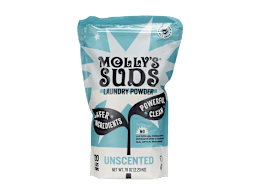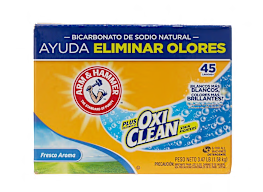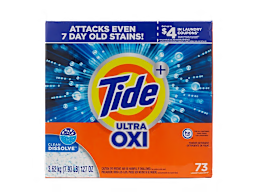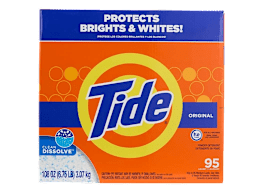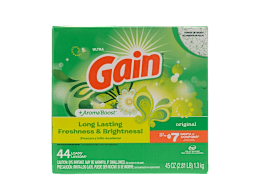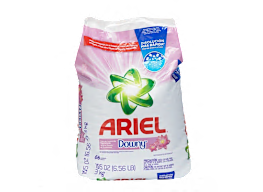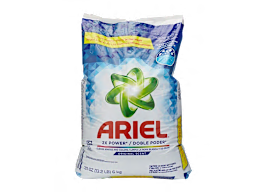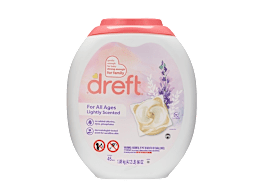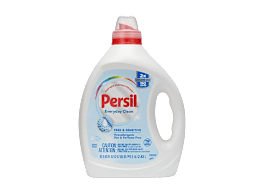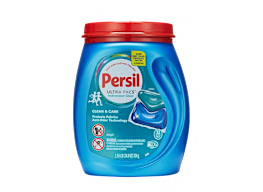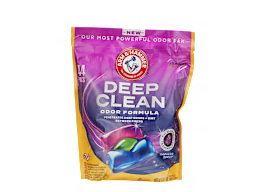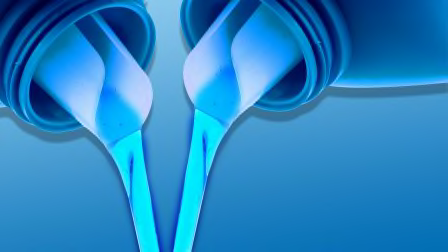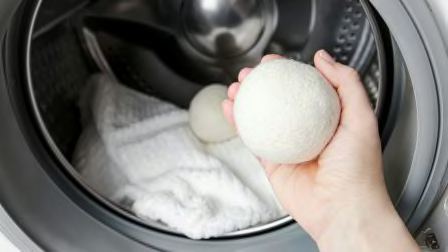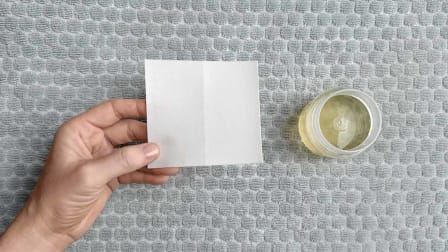Best Laundry Detergents for Hard Water
In CR's tests, Tide performed best with the most liquid and pod formulas that fight off hard water's effects
When you shop through retailer links on our site, we may earn affiliate commissions. 100% of the fees we collect are used to support our nonprofit mission. Learn more.
Hard water—that is, water rich in dissolved minerals—is found in 85 percent of the United States, according to the U.S. Geological Survey. So odds are, this could describe the water you use in your home.
Hard water doesn’t pose any serious health risks, but it can adversely affect your skin, laundry, and appliances. Your palms might feel slimy after washing, or your skin dry and itchy after showering. You might see chalky buildup around faucets or showerheads, see splotches on plates in your dishwasher, or find your laundry feels a bit stiff coming out of the dryer. But before you snag a bottle of fabric softener, try a detergent that works effectively in hard water.
What Is Hard Water?
Hard water contains high levels of dissolved calcium, magnesium, and a variety of other metals and minerals, some of which are actually beneficial for human health in moderate amounts. As water flows through soil and rock, it dissolves naturally occurring minerals, carrying them along with it.
How Do You Know If You Have Hard Water?
To find out if you have hard water, contact your local water utility or municipality for a free Consumer Confidence Report (CCR) that describes your area’s local water quality. You can also get your water tested by a lab or purchase your own hard water test-strip kit from a hardware store or online retailer, especially if your home has well water. "If you’re using well water without a water softener system, look for a laundry detergent that did well in our hard-water test," says Rich Handel, CR’s laundry expert.
Hard water can wreak havoc on your shower head, water heater, or washing machine, leaving behind limescale deposits that build up and reduce flow. When hard water is heated (when you use your washer’s hot setting, for example), solid deposits of calcium carbonate can form, which can reduce an appliance’s life cycle, lower its efficiency, raise heated water costs, and even clog pipes.
If your home’s water is very hard, you can install a water softener—a tank that removes minerals like calcium and magnesium from your home’s water supply using a process called ion exchange. That will improve your water’s clarity and taste, soften your hair and skin, clean dishes better, brighten and soften your clothes, and save water and energy long term, according to the Department of Energy. However, it replaces those minerals with sodium, which could affect individuals with high blood pressure who rely on the same source for drinking water. "Folks that treat their water to remove hardness to get that good cleaning ability should avoid drinking the tap water to minimize sodium intake," Boring says. A potassium water softener may be a better option in those cases.
How Does Hard Water Affect Laundry?
Hard water can diminish your laundry detergent’s performance, leaving clothes stiff, faded, or dingy. It doesn’t lather well, and when it mixes with soap, a film, residue, or scum can form—making it harder to rinse. This can interfere with cleaning, and require more soap to effectively wash your hands, hair, or laundry, according to the USGS.
“Not only can hard water impact the cleaning performance of detergents, but over time, it can cause issues like residues and odors as metals and minerals bind to body soils and build up on fabrics,” says Sammy Wang, fabric care senior scientist for Procter & Gamble, the maker of Tide, Gain, Dreft, and other laundry brands. “To combat the impact of hard water on cleaning, we use specialized ingredients in our detergents to bind hard water compounds and soften the water so the stain-fighters and grease-fighters can work effectively,” Wang says.
In addition to impeding a detergent’s ability to fight stains and odors, excess residues left by hard water can exacerbate allergic reactions for those with sensitive skin and skin conditions like eczema and psoriasis, according to Jennifer Davis Alexander, PhD, a holistic skin scientist and CEO of Dr. Jen Knows Skin. “This buildup found on the surface of fabrics may contain dirt, sweat, oils, minerals, and residual detergent that can cause skin irritation, including itching, dryness, and erythema—reddening of the skin,” she says. Our list of detergents below includes several formulated for sensitive skin.
If you have hard water, it’s best to choose a high-performing detergent that minimizes the effect of hard-water minerals and efficiently dissolves residue. Wang says consumers can look for detergent ingredients that address hard-water conditions, like citrates, which are sodium salt chemicals that serve as water softeners, cleaning and descaling agents, pH regulators, and preservatives. Commonly listed as sodium citrates, they require less detergent for efficient cleaning. Activating an extra rinse cycle or using a clarifying fabric rinse are also good hard-water strategies, Wang says.
Best Hard-Water Detergents From CR's Tests
In our tests, scores for hard water indicate how well a detergent maintains its cleaning performance in very hard water. For this, we typically use well water with a hardness of around 300 ppm.
None of the laundry detergents in our ratings perform excellently in water this hard. But based on our tests, eight of the top 11 liquid detergents in our ratings will do a respectable job cleaning clothes in homes with hard water. The top five rated pods (and eight of 18 pods overall) also proved very good at cleaning in hard-water conditions. Those detergents are listed below.
Detergents marketed as “gentle” generally didn’t clean as well in hard water, according to our tests. However, two Tide Free/Nature detergents—a liquid and a pod—scored very well in our hard-water test and are formulated for sensitive skin.
Most liquids at the bottom of CR’s performance ratings offered mediocre performance in hard water. Xtra Plus OxiClean was the worst hard-water performer in our ratings, scoring a dismal 1 out of 5. Laundry detergent sheets, likewise, proved ineffective in hard water, and under ordinary conditions as well.

